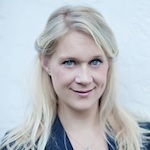Vocational Coherence and Constraints: Part One
Vocation is a wonderfully broad and encompassing word. In contrast to how we normally think about calling, as something having to do with our career or professional work, instead I find tremendous grace and reassurance in the more biblical understanding of vocation that helps us see all work as God’s work.
Etymologically, vocation comes from the Latin root “vox” which means “call” or “voice”. So, broadly speaking, one’s vocation is one’s entire life lived in response to God’s voice or call. This concept of vocation is much more comprehensive than what we might think about when we contemplate a particular role or career and seek to discover how that position or those tasks might define us.
Additionally, while vocation and calling are synonyms – one from a Latin root and one from a Greek root – I especially like a critical nuance that comes from its Greek root “kaleo”, which means not only “voice” or “call” but also “to give name to” or “to receive name from”. This is a key reminder that our callings, under God, are much more about who we are and to whom we belong than they are merely a statement about what we do or accomplish.
Coming to live under this more comprehensive view of vocation has been critical for helping me make sense of all the many roles, desires, disappointments and hopes I have to hold together each and every day. Part of this is because I work part-time outside the home in a professional capacity while also mothering three (soon to be four) young children. But in truth, every single one of us – male and female – benefits from a concept of calling that accounts for us as whole people with complex responsibilities rather than just wage earners or career professionals.
In my life, vocation has become a word that helps me insist on coherence. It gives me permission to look for threads or themes that weave in and out of all sorts of different commitments and responsibilities, yet still find consistency and stability within work of a widely different nature.
Part of what is particularly helpful, I find, is being more careful and inclusive about the language I use to define my calling. So, for example, I look for words that seem to capture a unique motivation across many different kinds of work like a longing to bestow dignity or to convene people or clarify ideas or curate a certain kind of environment or experience. Instead of defining my calling solely or exclusively by my function or role or circumstance, instead I try to examine what it is about those various responsibilities that are especially gratifying or energizing or interesting to me and then to look for patterns or themes in other parts of my life. This is not to say we are only called to work that we find interesting or work that is particularly gratifying, however. Rather, this approach allows us to become more attentive to how God might be revealing himself in and through our work even when we might be inclined to miss it.
For me this is helpful because it helps me think not only about what I like to do, but also how I like to uniquely do it, why I engage it the way I do, what I hope to accomplish. It helps me see my efforts as reflecting God’s heart into the world as one who creates beauty, or gives care, or sustains order, instead of focusing exclusively on my own contributions and needs and abilities.
And in this way, vocation is also very freeing. It becomes less about who I am and what I can do for God and instead allows me to rest in the person he has already made me to be and invite him to work more freely through me as he desires, whether that is as a stay-at-home caregiver or part-time consultant or full-time working professional or student or hobbyist or what have you. It grants me the freedom to be a conduit, a steward of His work rather than an agent of my own ambition.
What I especially like about this comprehensive view of calling is that it makes room for disappointments and limitations and mistakes rather than simply focusing on my talents and passions and abilities. It allows room for those too, to be sure, but a more encompassing view of vocation is also more honest in acknowledging a lot of life is not everything we wish it could be.
 Kate Harris serves as the Executive Director of The Washington Institute for Faith, Vocation, and Culture located just outside Washington D.C. in northern Virginia. A proud native of Colorado, Kate moved to DC in 2002 as a Falls Church Fellow where she worked with Chuck Colson and Prison Fellowship on several human rights and justice policy initiatives.
Kate Harris serves as the Executive Director of The Washington Institute for Faith, Vocation, and Culture located just outside Washington D.C. in northern Virginia. A proud native of Colorado, Kate moved to DC in 2002 as a Falls Church Fellow where she worked with Chuck Colson and Prison Fellowship on several human rights and justice policy initiatives.
She then spent several years working on Capitol Hill for U.S. Senate leadership and helped to lead the vocational ministry Faith & Law. In 2007 Kate left Capitol Hill to help start The Wedgwood Circle, an angel investment network to fund art that lifts up the good, true and beautiful. In 2008 her family moved to England for her husband to pursue his graduate degree and, when not busy caring for their young children, Kate worked part-time to lead business development for a boutique project management firm.
She also worked on a handful of special projects for the global consulting firm Oxford Analytica. After returning to the DC area, Kate joined The Washington Institute as a writer in 2010 and began directing its development in 2011. She recently wrote Wonder Woman: Navigating the Challenges of Motherhood, Career, and Identity(Zondervan: 2014) as part of the Barna Group Frames. Kate graduated from the University of Colorado at Boulder with a B.S. in Journalism and B.A in Political Science. She is wife to a very good man and mother to their four young children.



